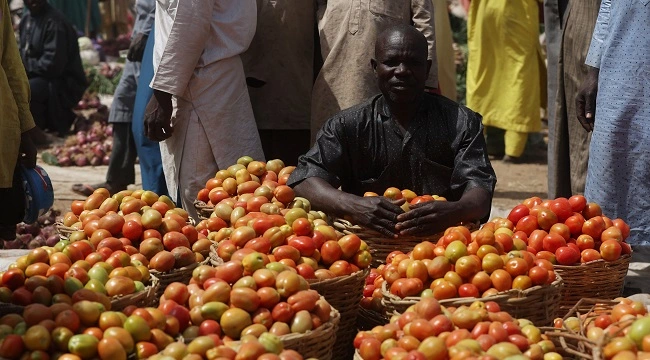The inflation rate has moved to 31.70 per cent in February, according to the latest data by the National Bureau of Statistics (NBS).
According to the ‘Consumer Price Index and Inflation Report’ for February obtained by Channels Television, the hike represented a 1.80 per cent increase from what was recorded in January.
“In February 2024, the headline inflation rate increased to 31.70% relative to the January 2024 headline inflation rate which was 29.90%.
“Looking at the movement, the February 2024 headline inflation rate showed an increase of 1.80% points when compared to the January 2024 headline inflation rate,” the report read in part.The data showed that on a year-on-year basis, Nigeria’s headline inflation rate was 9.79 per cent higher, compared to 21.91 per cent recorded in February 2023.
“This shows that the headline inflation rate (year-on-year basis) increased in February 2024 when compared to the same month in the preceding year (i.e., February 2023),” the NBS said.
Meanwhile, the food inflation rate in February was 37.92 per cent on a year-on-year basis. This was 13.57 per cent higher when compared to the rate recorded in February 2023 (24.35 per cent), according to the report.
Friday’s figures come amid a push by authorities to combat the rising costs of living in the country. The removal of fuel subsidies on petroleum, and the floating of the naira were major triggers of the hike.
The rising costs of living have since triggered protests in several parts of the country, however, the government is assuring Nigerians of tackling the challenges.
Despite the rising inflation rates, the Governor of the Central Bank of Nigeria (CBN), Yemi Cardoso, had earlier expressed optimism about a drop.
“The Nigerian foreign exchange market is currently facing increased demand pressures causing a continuous decrease in the value of naira,” he told members of the House of Representatives in February.




